Codebug Connect: Kid Friendly IoT Projects
Powering projects great and small
Get Tom's Hardware's best news and in-depth reviews, straight to your inbox.
You are now subscribed
Your newsletter sign-up was successful
Codebug Connect, a project to enable anyone to create their own gadgets is now available via Kickstarter. Codebug Connect is a microcontroller based board that aims to "democratise making and allow people to build what they imagine without technology getting in the way." To do this it uses the popular MicroPython programming language accessible via a self hosted web IDE compatible with most web browsers, enabling use via computers, tablets and mobile devices.
Codebug Connect is the second product in the Codebug range, with the former released in April 2015.
The goal of Codebug Connect is to "allow people of all abilities to build their own connected gadgets. Fun or serious; from making an eye-catching animated badge, to light painting, to mapping air quality data across a city or sending an alert when there's a squirrel on your feeder. " - Dr Andrew Robinson, creator of Codebug.
Codebug Connect is powered by an Atmel SAMD21, the same chip which features in the Arduino MKR WiFi 1010 and many boards from Adafruit. Codebug Connect can be programmed using a built-in IDE available via your browser courtesy of a Wi-Fi access point created by Codebug Connect. The IDE uses a refactored version of MicroPython, a version of Python 3 for microcontroller boards. Codebug Connect can also be used with C and C++, and the Arduino application along with compatible libraries and toolchain. An interesting feature of Codebug Connect is an experimental long range radio link to another Codebug Connect, enabling data to be sent between devices which are up to 800m away!
- 5x5 RGB LEDs with dedicated hardware driver/buffer
- Two 5 way navigation joysticks
- Onboard Accelerometer
- 4 GPIO legs, including high impedance sensing for detecting touch
- 6 Sewable/croc-clip-able loops. 4 I/O including analogue 1 power and ground
- 6 pin GPIO 0.1" header (configurable for UART/I2C/SPI, I2S or analogue audio out)
- QuadCore -- four heterogeneous processors
- 4MB Flash Storage
- 2.4GHz WiFi 802.11 b/n/g, Station and Soft AP (simultaneous)
- Experimental long range wireless 0.8km to another CodeBug Connect
- UART terminal access over USB
- High efficiency SMPS Boost converter for battery (JST PH connector)
- High efficiency SMPS Buck converter from 5V USB
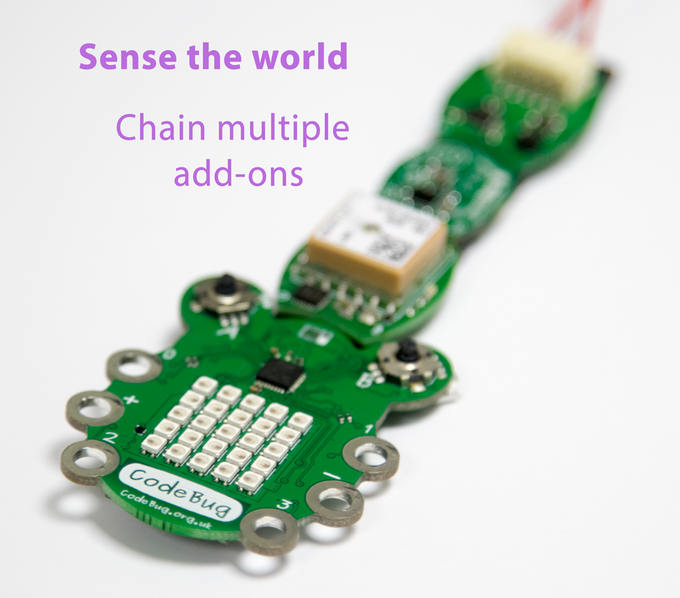
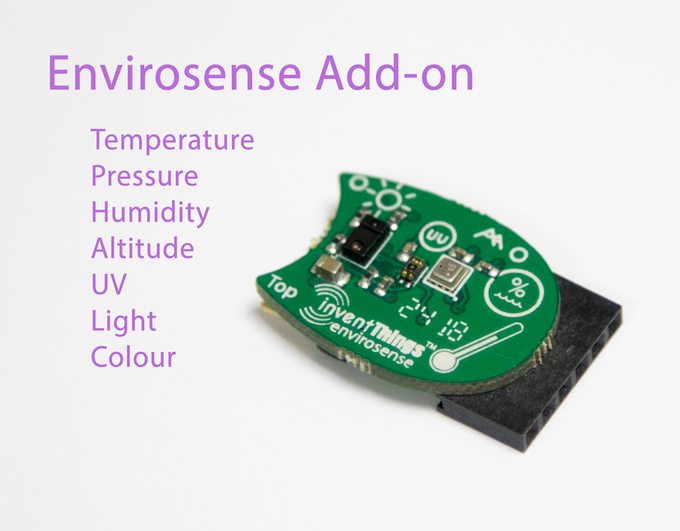
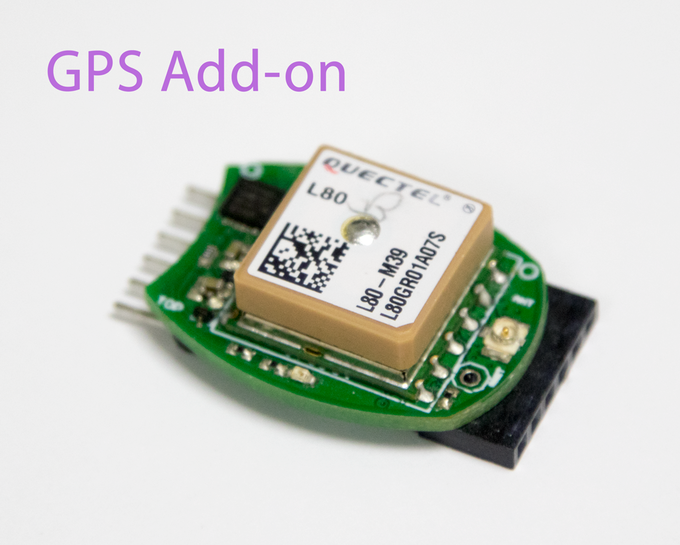
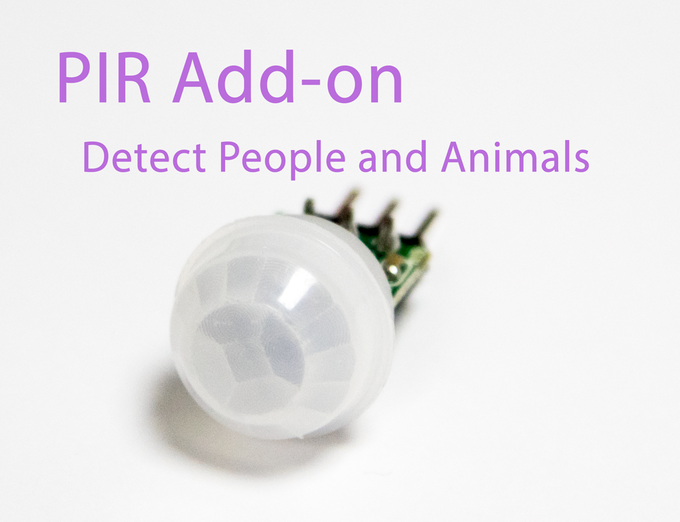
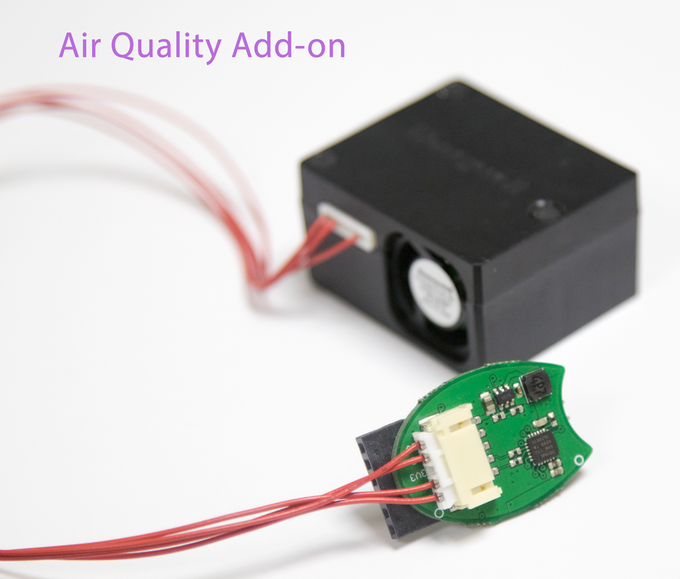
Codebug Connect is for all levels of maker. Children taking their first steps will find the onboard RGB LEDs a colorful and quick way to get to grips with the board. Moving onward they can then tackle the six "loops" which offer a strong connection for crocodile clip circuits and a means to use conductive thread for wearable projects.
For the more advanced maker a six pin header provides a means to connect devices using UART / I2C / SPI and I2S, including a range of specially designed add-ons which can be chained together. The Envirosense add-on provides sensors for temperature, humidity, pressure, altitude, UV, light levels and color. This add-on could be used to create your own Wi-Fi enabled weather station or add the air quality and GPS add-ons for a citizen science project which shows the weather and air quality where you live.
Codebug Connect is available via Kickstarter with pledges starting from $33 (£25) and shipping from March 2021. A super early bird, limited to 100 units is available for $53 (£40) and will be sent to backers in December 2020.
Get Tom's Hardware's best news and in-depth reviews, straight to your inbox.

Les Pounder is an associate editor at Tom's Hardware. He is a creative technologist and for seven years has created projects to educate and inspire minds both young and old. He has worked with the Raspberry Pi Foundation to write and deliver their teacher training program "Picademy".